
11 minute read
Trustees are the Turtles: Professor Harry Lewis ’65
“Trustees are the Turtles.” Professor Harry Lewis ’65 on the Role of Trustees at Roxbury Latin
Good morning, and welcome back to school on this, the first day of the second half of the three hundred and seventyfifth year of The Roxbury Latin School. We are gathered to celebrate the service of Dennis Kanin as Trustee and, for a decade, as president of the Trustees. Others will have more to say about Mr. Kanin in a moment, but it is a special pleasure for me to kick things off, because Mr. Kanin and I have known each other for 60 years now. We met, I am pretty sure, when I was a Sixie and he was a Fifthie in 1960. Dennis was a year ahead of me at RL, and I’d like today’s RL boys to think about that. Now, just for a moment, stop looking at me and look instead to your left and to your right, at the row in front of you and the row behind. Look at the faces you see. Which ones will you have the pleasure of honoring 60 years hence, in January of 2080? Few of the rest of us here today in Rousmaniere Hall will be back then to learn the answer to that question. But RL itself will be here, and it’s quite possible that one or two of you will be right here sixty years from now, honoring the long service of the men you became and whom you knew, today, as boys. And that brings me to my job today, which is to tell you about the Trustees and their role.
Advertisement
I’d like you to remember three things about the Trustees. First is that the Trustees are the turtles. Second is that the Trustees are the climate. And third is that the Trustees are the people. Now it is too early in the morning for riddles, so fear not, I will explain.
First, the Trustees are the turtles. I’m referring here to the old myth of the boy who climbed to a mountain cave to seek wisdom from a mystic. The boy asked, “Oh wise man, what holds the world up? Why doesn’t everything fall away to oblivion?” And the mystic gravely said, “Son, the world rests on the back of a giant turtle.” The boy went back down the mountain and thought about that for awhile, then climbed back up the mountain and approached the mystic a second time. “Oh wise man,” he said, “if the world rests on the back of a giant turtle, what is supporting that turtle?” “The giant turtle supporting the world,” the mystic said, “rests on the back of an even more gigantic turtle.” Now did I mention that this
boy had gone to Roxbury Latin? He did, and he had learned there to be skeptical, irreverent, argumentative, and generally annoying. So this time he shot right back at the mystic. “Really?” he said. “But then, what about the second turtle? What holds up the turtle that supports the turtle on which the world rests?” The mystic breathed deep, opened his eyes, and revealed the whole truth. “It’s turtles,” he proclaimed, “all the way down!”
Now Roxbury Latin is the world, for our mythic purposes. And you students are the reason this world exists. And this world has a certain orderliness to it. The faculty admit and teach the students. The headmaster hires the faculty. The Trustees appoint the headmaster. And who appoints the Trustees? The Trustees appoint the Trustees. They form the mortal links in an eternal chain, each set of Trustees appointing the next so that headmasters, faculty, and students, this entire world, will not fall to oblivion and will continue to exist in perpetuity. Mr. Kanin and the other Trustees who are with us today are just the top turtles, but there have been turtles on top of turtles all the way back to the beginning of the school. There have been 335 Trustees in all, going back to the first six in 1645. Their names were Thomas Lambe, Joseph Weld, Joshua Hewes, John Roberts, Isaac Morrell, and John Johnson. Many Trustees are alumni of the school, and nowadays more than half must be alumni, though of course that could not have been the rule at the beginning. Like the turtles supporting the world, most of the time they are barely perceived by you earthlings.
The Trustees keep Roxbury Latin going, always making sure that it can afford to continue its operations, and occasionally making really big decisions. The two gentlemen above the piano for example, Robert Hallowell Gardiner and Charles Hall Grandgent, were particularly important turtles, I mean Trustees, in their time. They made the momentous decision to move the school in 1927 from its cramped quarters in Roxbury to the spacious campus we now enjoy. So the Trustees don’t just preserve and support, though that is their first job. Sometimes they institute changes, as must happen since the world changes around us. So the school has changed over the years, and that brings me to my second point. Moving to a scientific metaphor, the Trustees are the climate. Now the climate is distinctive to a place. It’s hot and humid in the summer here in Boston and cold in the winter, and no other place has a climate exactly like Boston’s, though some places resemble it in one way or another. In the same way, no other school has a climate exactly like Roxbury Latin’s. It’s a small day school for boys in grades 7-12, with a commitment both to the classics and to a diverse student body, a place that believes that mortui vivos docent, mens sana in corpore sano, and so on.
Now if the Trustees are the climate, then the headmaster and the faculty are just the weather. They blow hot and cold, not necessarily on a daily basis. But every year at RL is a little different than the previous one. The Trustees don’t track every breeze or even every storm, but like the climate, they provide stability of purpose even as the experience of life here may change. When RL decided to move almost a century ago, or when it decided to build a hockey rink only a few years ago, those are Trustee decisions. The headmaster and the faculty can’t make those kinds of decisions on their own. The
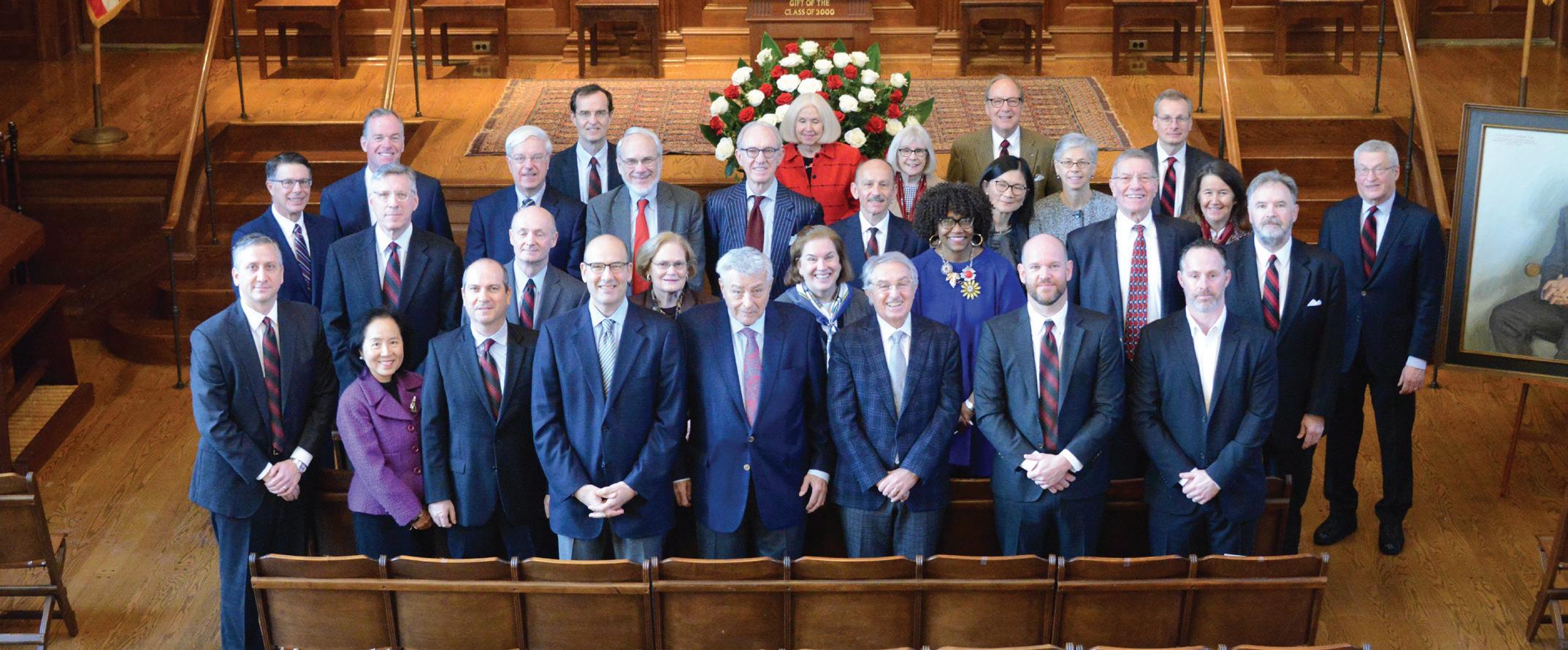
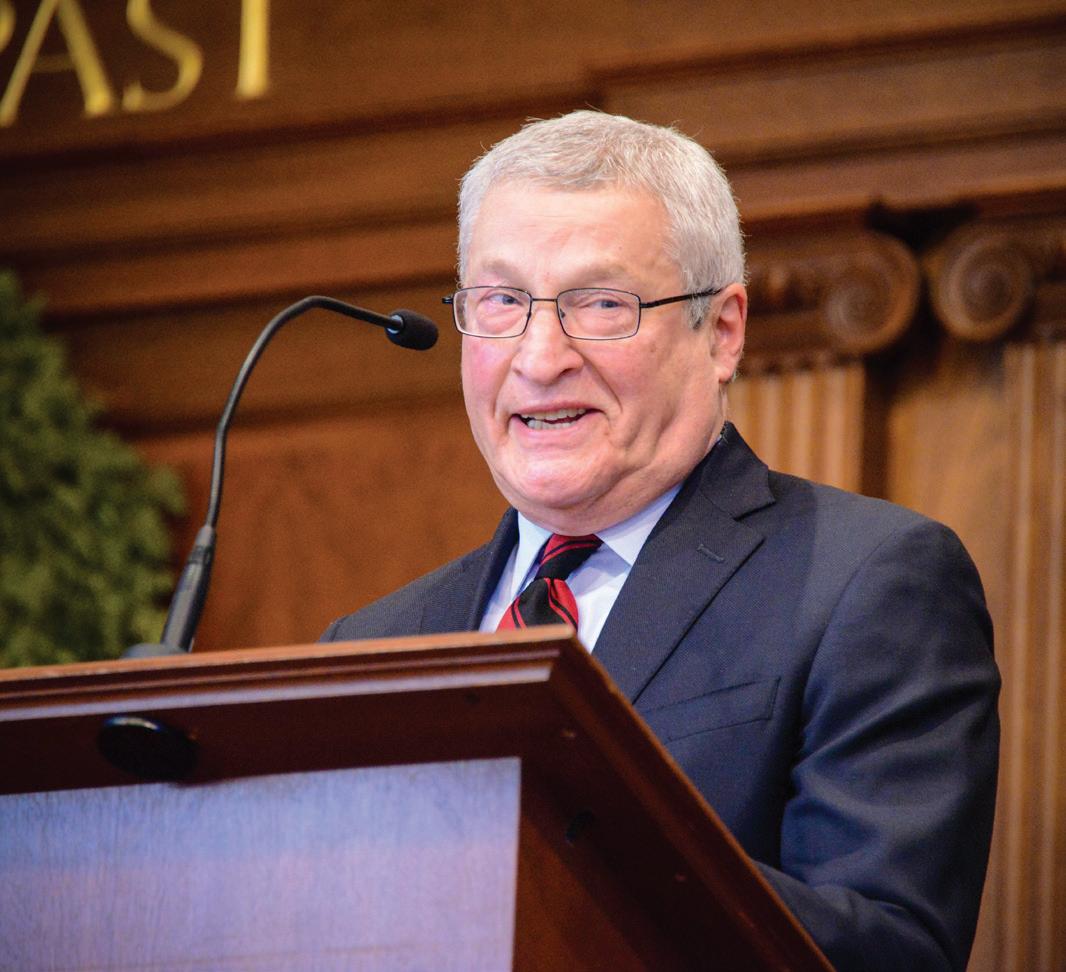
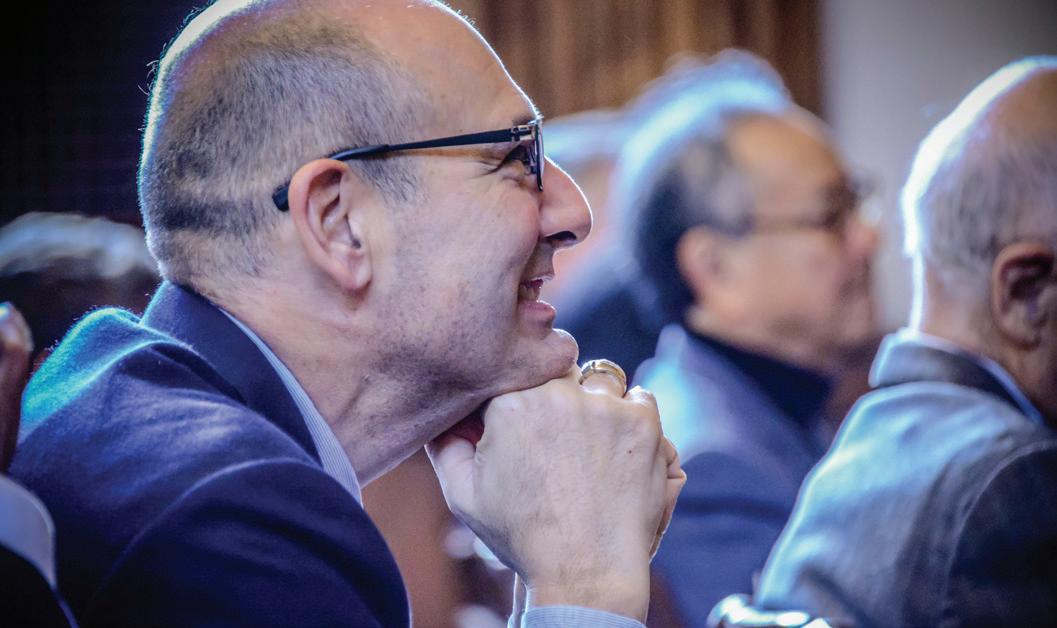
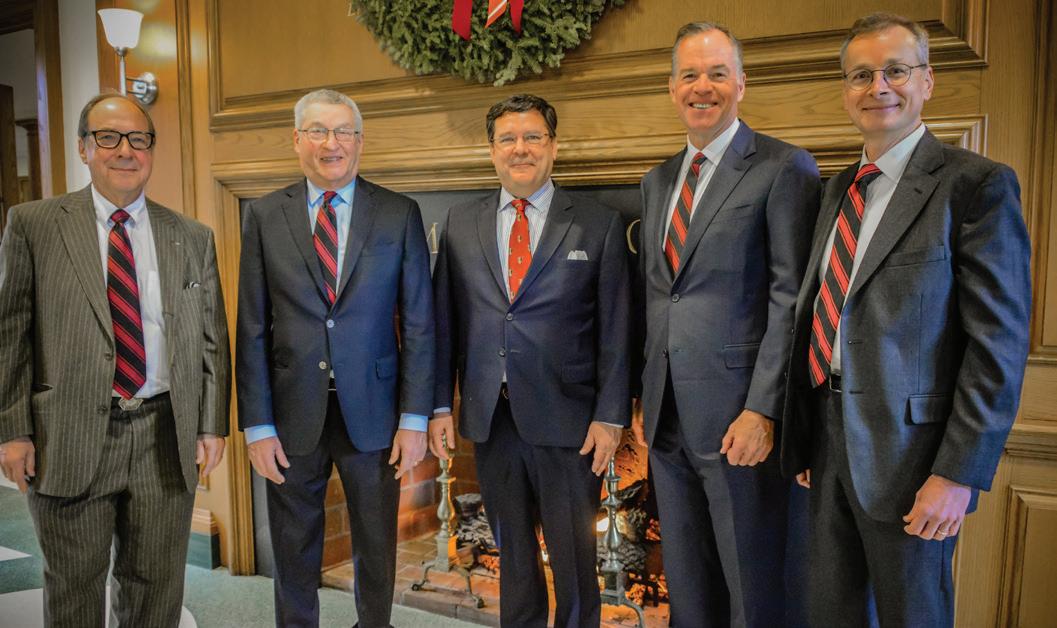
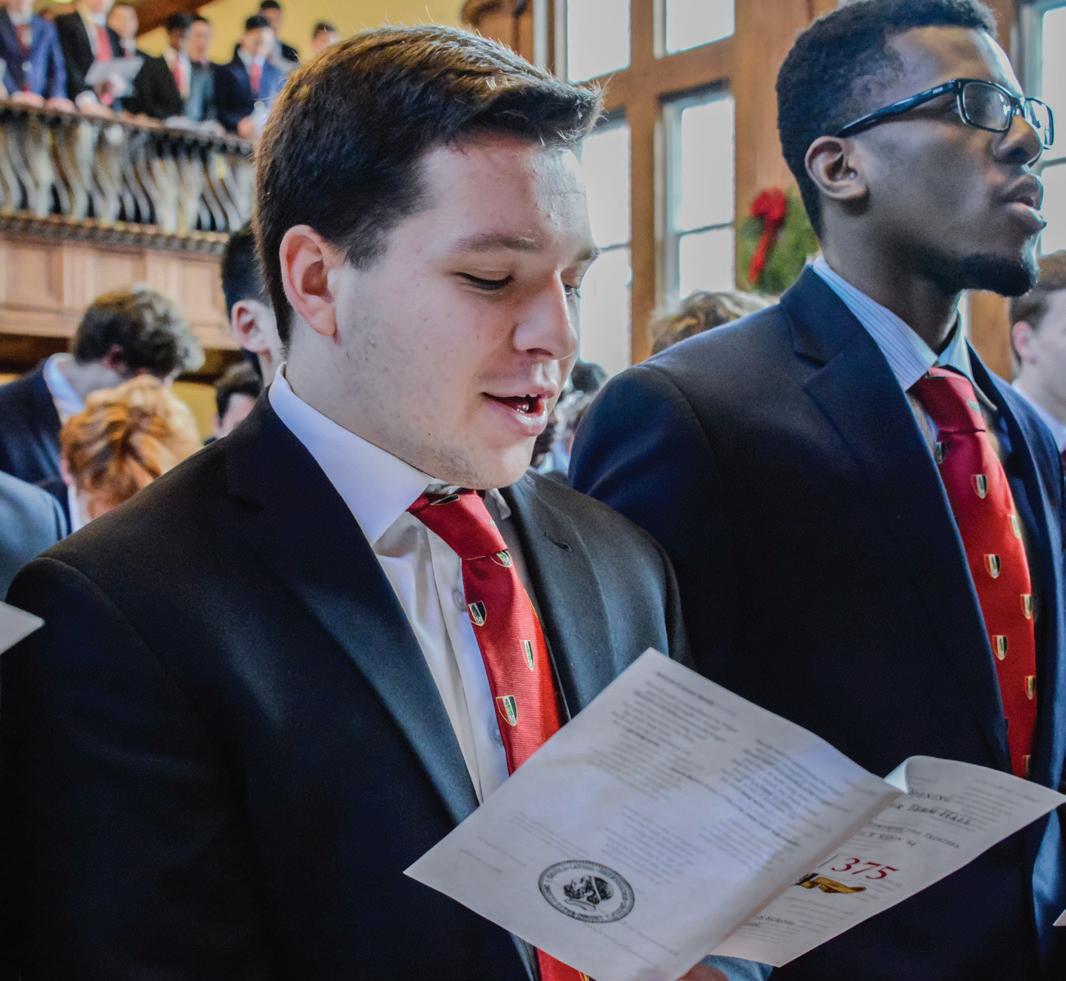
Trustees are supposed to maintain a long time horizon, to plan and execute big changes when needed to maintain our core purposes into the future as the world changes around us.
And finally, a civic metaphor. The Trustees are the people. Now this point is a little more subtle. The Trustees have the responsibility of supporting the school into perpetuity and planning and executing the big changes that must occasionally occur. But then, how come most of the Trustees are not educators? There are a few people like me who work for a living as teachers, but most Trustees work in business, law, medicine, or other worthy endeavors. They are educated, and they understand the value of education, but they are not educators. If these people don’t know anything first hand about education, why are they the ones guarding the present and charting the future of an academic institution?
It’s a good question with a particularly American answer. In this country, it is the norm that secondary and collegelevel institutions are governed by non-educators. The boards of governors or trustees, who hold ultimate power over educational institutions, are people who have never held a stick of chalk in their hands and probably can’t conjugate a verb or factor a quadratic.
It’s not obvious that this is the way things should work. Other institutions don’t work that way. The top dogs in law firms are all lawyers. Sometimes we think of schools as being like churches, but most churches generally don’t operate this way either. In the Roman Catholic church, for example, the pope and the cardinals are themselves priests. And it’s not this way even in educational institutions outside the U.S. At Oxford and Cambridge, it’s the professors themselves who make the decisions about budgets and land purchases, for example.
It’s a deeply American principle that lay people—people who are not educational professionals—are the final authority at educational institutions. They represent the public’s interest in the deal that these institutions have made with American society. And that is why I referred to the Trustees as the people. Roxbury Latin is a public charity, which under U.S. law is a very different kind of animal than an ordinary forprofit business. We are tax exempt and eligible to receive taxdeductible contributions from private individuals. And we are free within very broad limits to operate without government interference. That’s why our 17th-century charter refers to us as the “free school in Roxbury,” not because it didn’t cost anything to attend but because we were, and remain, free from both government and church control of our affairs.
But in exchange for our freedom from external interference and our privileged status as a charitable institution, we are committed to serve the public interest, not our own interest. RL has to stay true to its mission to prepare students for service to church and commonwealth. The Trustees are called Trustees because they are the ones entrusted with the responsibility of making sure that RL keeps its half of the bargain our forebears long ago made with the people of Massachusetts and of the USA. So we can’t, for example, pay Mr. Brennan a $100 million dollar salary (much as he deserves it!), fire all the rest of the teachers, and get rid of all the students. The Trustees represent the public interest in keeping the school true to its mission. Society has given us the sacred trust to keep the school a servant to society, and that is why you hear so often about service from your headmaster and the other faculty. That is why people keep telling you that from those to whom much has been given much will be expected. It’s not only morally and ethically right; it’s part of the deal with America under which we exist.
So welcome back to the oldest school in continuous existence in North America. Remember that the Trustees are the ones responsible for keeping it on course to survive another 375 years. They are the turtles under the school’s massive weight, the climate in a time of turbulent weather, and the representatives of the public interest. In the short run, remember that the civic and moral lessons this place teaches you are part of that eternal trust the Trustees are charged with maintaining. And look around you once again, because in the long run all these responsibilities will fall to you. Thank you. //
Men of Roxbury
Tony Jarvis’s Final Book Available for Purchase
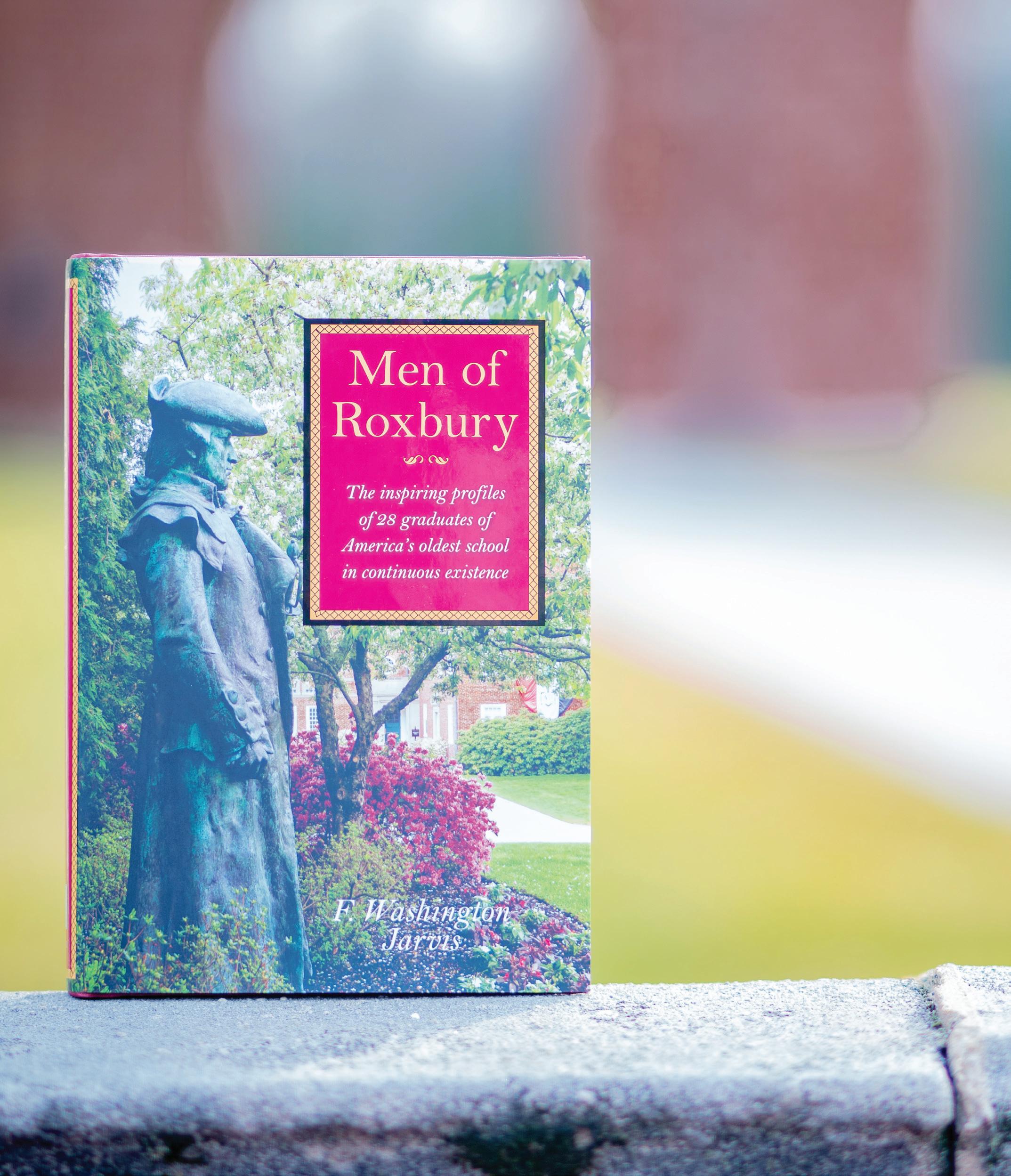
Printed in conjunction with Roxbury Latin’s 375th Anniversary celebration, Tony Jarvis’s fifth and final book, Men of Roxbury, includes profiles of 28 of the school’s distinguished alumni, as Reverend Jarvis writes, “whose lives of public service seem to incarnate all that Eliot hoped for in his students.” The lives and careers of General Joseph Warren, Arthur Vining Davis, Frederick Law Olmsted Jr., and James Bryant Conant, among many others, are brought to life with extended and amusing detail. Published by Boston book publisher David Godine, RL Class of 1962, the book is available to purchase through the school for $35. Please email men_of_roxbury@roxburylatin. org for further details.
SAVE THE DATES
375th Anniversary Celebration: Honoring Our Faculty SATURDAY, MAY 9, 2020 Alumni, parents, faculty, and staff will be invited for a special evening celebration of Roxbury Latin’s faculty—past and present. This event on campus will be complete with delicious food and drink, and wonderful company.
An Evening of Music: Berman Artists in Residence MONDAY, APRIL 27, 2020 ROUSMANIERE HALL This year’s Berman Artists in Residence—alumni Gilles Vonsattel ’99 (piano), Stefan Jackiw ’03 (violin), and Lev Mamuya ’14 (cello)—will perform an evening concert in Rousmaniere Hall, open to all members of the extended Roxbury Latin community, with a reception to follow.
ARTS CALENDAR
Sunday, March 8 @ 6 PM Glee Club Concert with The Winsor School
Friday, April 3 @ 7:30 PM A Cappella Fest
Friday, April 24 @ 7:30 PM Senior Concert
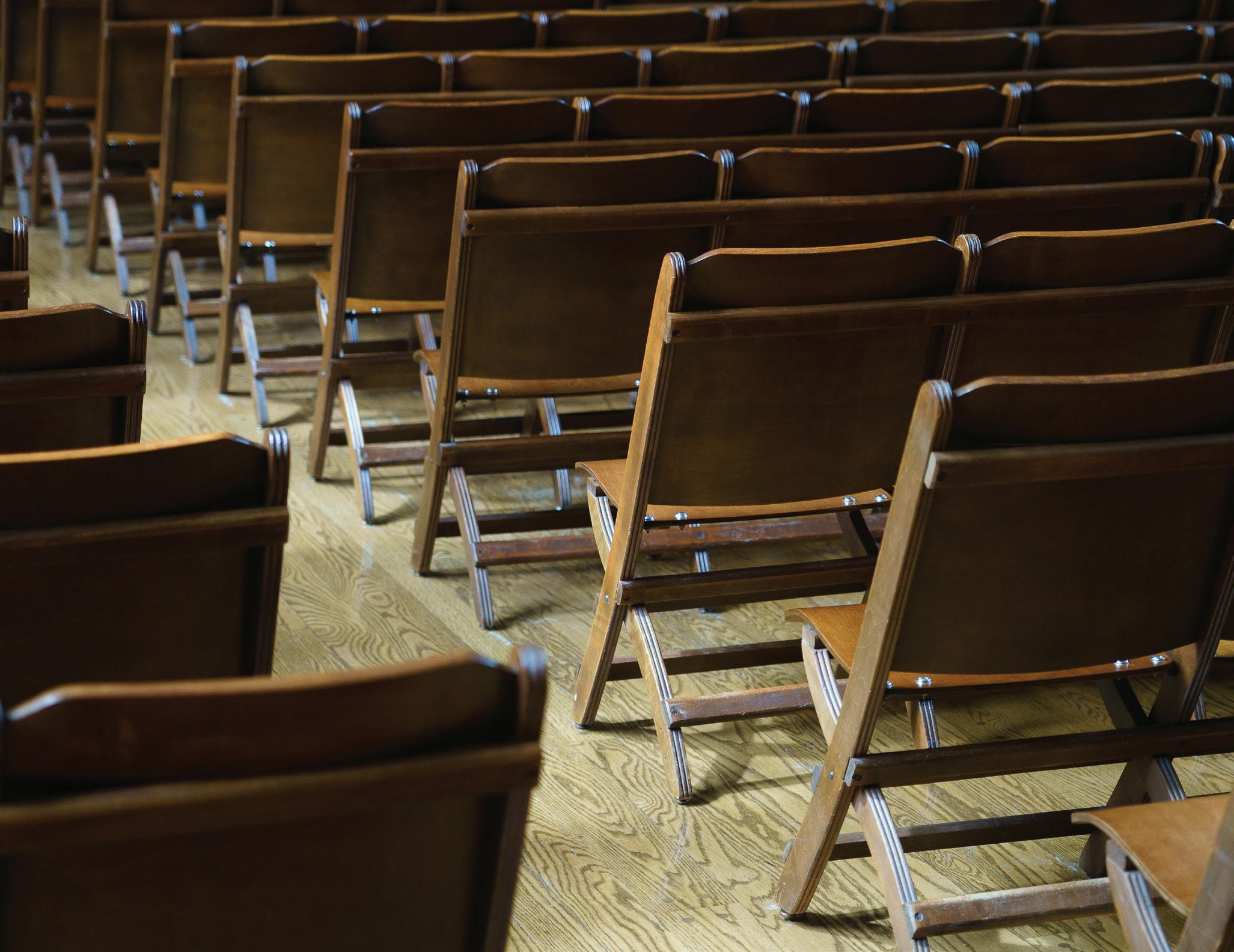
Thursday, May 7 @ 7:30 PM Sly Voxes Spring Concert
Tuesday, May 12 @ 7 PM Latin Play
Friday, May 15 @ 7:30 PM Instrumental Concert










